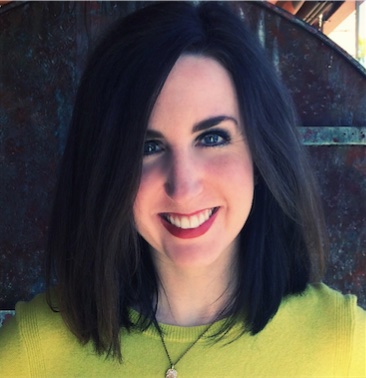- Calls to this hotline are currently being directed to Within Health, Fay or Eating Disorder Solutions
- Representatives are standing by 24/7 to help answer your questions
- All calls are confidential and HIPAA compliant
- There is no obligation or cost to call
- Eating Disorder Hope does not receive any commissions or fees dependent upon which provider you select
- Additional treatment providers are located on our directory or samhsa.gov
Setting up Aftercare Treatment for Bulimia Recovery

As with any eating disorder, aftercare treatment for bulimia is a crucial part of recovery. It can seem daunting to apply the tools learned in treatment once faced with old triggers.
Regardless of the level of care from which an individual been discharged, the days, weeks, and months that follow can make the difference between recovery and relapse.
The National Association of Anorexia Nervosa and Associated Disorders (ANAD) states that approximately 1.1 to 4.2 percent of women struggle with bulimia nervosa. Though no current statistics exist on relapse rates specific to the disorder, a past study[1] led by Marion P. Olmsted, Ph.D., of the Eating Disorder Day Center at Toronto Hospital in Ontario, Canada, reported a relapse rate of 31 percent among female patients at the facility.
Participants in the study reported that most relapses occurred within six months of discharge from the treatment center, reinforcing the strong need for proper aftercare and follow-up for long-term recovery from bulimia.
Aftercare Treatment for Bulimia and the Treatment Team
 The assignment of an outside treatment team is often required prior to discharge from an eating disorder treatment facility.
The assignment of an outside treatment team is often required prior to discharge from an eating disorder treatment facility.
An outside therapist helps the client navigate everyday life post-treatment, often implementing cognitive behavioral therapy (CBT) and other modalities proven to reduce disordered thoughts and behaviors.
The registered dietician (R.D.), or nutritionist, monitors and adjusts meal or exercise plans to ensure disordered behaviors do not resurface. If they do, these issues are typically addressed during therapy, which is why communication within an individual’s treatment team is paramount.
An outside psychiatrist is only applicable if the individual is currently taking prescription medication. Fluoxetine, or Prozac, is the only medication approved by the U.S. Food and Drug Administration (FDA) for the treatment of bulimia nervosa.
However, many individuals with eating disorders concurrently struggle with anxiety, depression, or other mental health conditions that require medication for symptom management.
If someone in recovery is on prescription medication, regular follow-up visits with a psychiatrist are essential for management and monitoring. Check-ups with a medical professional might also be needed if bulimia-related behaviors triggered other health complications.
Regaining a Sense of Normalcy
 While recovery remains the priority for the individual, transitioning into daily life post-treatment means recommitting to past responsibilities, such as work or school.
While recovery remains the priority for the individual, transitioning into daily life post-treatment means recommitting to past responsibilities, such as work or school.
These outside activities can help an individual regain a sense of normalcy and independence while having structure that is conducive to recovery.
For this reason, many factors are taken into consideration when choosing an outside treatment team, including cost, hours of availability, and proximity to work, school, or home. It does not help to find a well-respected therapist who specializes in bulimia nervosa if he or she is 50 miles away and only available during the hours the client is in school.
Family and loved ones can help with the decision-making process regarding aftercare, as it might be overwhelming for those in treatment to select providers or make initial appointments.
Specialist Versus Non-specialist
Many eating disorder treatment centers are required to only recommend outside mental health professionals and nutritionists who specialize in eating disorders. While the rationale behind this standard is clear, many of these specialists are not covered by insurance.
The out-of-pocket costs associated with these professionals is often unrealistic for people fresh out of treatment, so many either simply stop going to aftercare appointments or seek help from non-specialists.

Non-specialists can help with co-occurring anxiety or depression.
However, professionals without past experience working in eating disorder treatment are often unintentionally triggering when it comes to language and a general lack of understanding regarding disordered food behaviors.
If individuals are unable to afford a referred eating disorder or bulimia nervosa specialist due to lack of insurance coverage, they can search for covered therapists and psychiatrists through their respective insurance companies.
Often, mental health professionals include a laundry list of “specialties.” Therefore, it is recommended to call or otherwise contact the provider before setting up an appointment to ensure that he or she is genuinely knowledgeable about eating disorders.
There are many alternative aftercare resources available within the eating disorder community. Some certified life coaches specialize in recovery, often offering services on a sliding scale.
Support groups can also be a valuable resource, including alumni groups offered by many eating disorder treatment centers. ANAD holds local meetings nationwide similar in nature to those offered by 12-step programs.
While in an eating disorder program, professionals aim to help an individual find his or her way out of the woods of bulimia nervosa and onto the path to recovery. Post-treatment, a solid team of professionals and loved ones can empower him or her to stay on that path.
References
[1]: Olmsted, M.P. “Rate and prediction of relapse in bulimia nervosa.” Am J Psychiatry. 1994 May;151(5):738-43.About the Author:
 Courtney Howard is a Certified Life Coach specializing in eating disorders through Lionheart Eating Disorder Recovery Coaching. As a content writer at The Sovereign Health Group, Courtney is a passionate advocate for recovery and works to fight the stigma surrounding all mental health disorders.
Courtney Howard is a Certified Life Coach specializing in eating disorders through Lionheart Eating Disorder Recovery Coaching. As a content writer at The Sovereign Health Group, Courtney is a passionate advocate for recovery and works to fight the stigma surrounding all mental health disorders.
She graduated summa cum laude with a Bachelor of Arts (B.A.) from San Diego State University, holds a paralegal certificate in Family Law, and is a Certified Domestic Violence Advocate.
The opinions and views of our guest contributors are shared to provide a broad perspective of eating disorders. These are not necessarily the views of Eating Disorder Hope, but an effort to offer discussion of various issues by different concerned individuals.
We at Eating Disorder Hope understand that eating disorders result from a combination of environmental and genetic factors. If you or a loved one are suffering from an eating disorder, please know that there is hope for you, and seek immediate professional help.
Last Updated & Reviewed By: Jacquelyn Ekern, MS, LPC on December 19, 2015
Published on EatingDisorderHope.com

The EatingDisorderHope.com editorial team comprises experienced writers, editors, and medical reviewers specializing in eating disorders, treatment, and mental and behavioral health.

